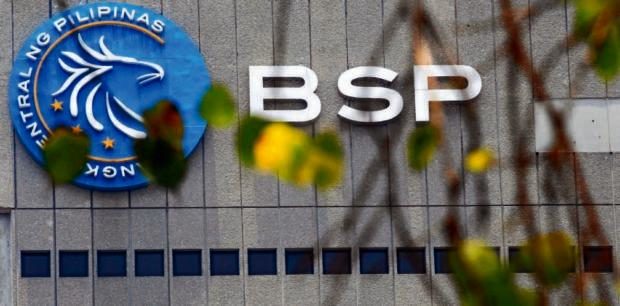
Bangko Sentral ng Pilipinas. (File photo / Philippine Daily Inquirer)
MANILA, Philippines – Philippine banks have become more cautious in granting new loans in the first three months of 2019 and expect to impose more stringent credit criteria in the current quarter, even as demand for funding among households and businesses grow.
This was according to the latest survey results of the Bangko Sentral ng Pilipinas whose diffusion index methodology revealed a “net tightening of credit standards for both loans to enterprises and households.”
“In the previous quarter, credit standards for loans to enterprises and households also showed a net tightening based on the diffusion index approach,” the central bank said in a statement, even at the results of its latest Senior Bank Loan Officers’ Survey show financial institutions maintaining their credit standards under a second methodology called the modal approach.
Specifically for corporate borrowers, results based on the diffusion index approach pointed to a net tightening of credit standards for the first quarter, which was attributed by respondent banks to their reduced tolerance for risk, deterioration in the profitability and liquidity of their portfolio, less favorable economic outlook, and perception of stricter financial system regulations.
In terms of specific credit standards, diffusion index-based results suggested stricter collateral requirements and loan covenants as well as increased use of interest rate floors, the central bank said.
“Results based on the diffusion index approach showed that more respondent banks expect overall credit standards for business loans to tighten over the next quarter compared to those that expect the opposite, on the back of respondent banks’ expectations of stricter financial system regulations and reduced tolerance for risk, among others,” the central bank said.
The BSP survey showed banks similarly expecting to impose tighten loan standards in the second quarter for household and real estate loans, after already having tightened in the first quarter of the year.
Using the same approach, results showed a net increase in loan demand particularly from large middle-market enterprises and small and medium enterprises as well as for credit card loans, the central bank said.
The overall net increase in loan demand from firms was attributed by banks to their customers’ higher working capital requirements as well as increased investment in plant or equipment. Meanwhile, respondent banks attributed the overall net increase in household loan demand to higher household consumption, among others.
The BSP has been conducting the loan survey since 2009 to gain a better understanding of banks’ lending behavior, which is an important indicator of the strength of credit activity in the country. It focuses on the quarter-on-quarter changes in the perception of respondent banks. A total of 66 banks were surveyed for the latest edition.